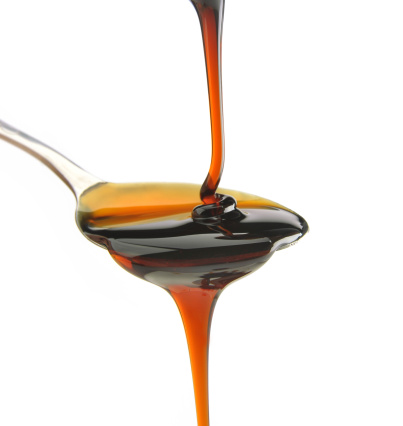Why Its So Hard To Quit Soda & Sugary Drinks (And What To Do About It)

As Americans, we’re becoming more health conscious, a change reflected in the creation of a $60 billion weight-loss industry. Generally, we seek to become healthier by changing our exercise patterns and modifying our foods. These are essential tools toward achieving a more healthful life, but we sometimes marginalize our beverage choices in the process.
Despite a decline in recent years, data shows we’re still buying roughly 9 billion cases of soda per year. Add that to the money we spend on juice, sports drinks, and other sweetened beverages, and the resulting health impact of our sugary drink choices is anything but trivial.
Let’s start with the facts. Soft drinks and other drinks sweetened by sugar are the top source of added sugar in the American diet. Over the last 50 years, we’ve seen a 500% increase in consumption of these beverages. More frighteningly, these drinks are the top source of calories in our pediatric population. Considering the studies showing that added sugar leads to weight gain in children and adults, as well as an increased risk of developing type 2 diabetes and heart disease, these drinks may well be sending us to an early grave.
But perhaps you already knew that soda was bad for your health? After all, very few people believe they’re staying healthy while downing a liter bottle of Coke. But you should also appreciate the fact that a glass of your favorite fruit juice or sports drink may actually contain more sugar than that soda you avoided, as well as more calories. For these sports beverages and fruit-based drinks, we’d like to tout the relative health benefits, assuming they outweigh the cost of a bit of extra sugar. Perhaps this is true in moderation, but take a quick glance at Harvard’s beverage comparison tool. Once you realize that your pure grape juice has 5 teaspoons more sugar, and nearly double the calories compared with your can of Coke, you may want to reconsider your selection.
I don’t mean to imply that all fruit juices and sports drinks are as bad as soda. Pomegranate juice is loaded with antioxidants, though it’s still high in sugar. Some sports drinks emphasize electrolytes over sweetener. That said, you’re better served eating your pomegranate, as the sugar would be partially offset by fiber in the skin of the fruit. And unless you're a competitive athlete in training, most sports drinks contain far more sugar than you need. Reducing added sugar is the key, which eventually leads to a discussion on sugar alternatives.
Artificial sweeteners are a new, constantly evolving creation. With all the information on sugar consumption leading to obesity, most people choose these substitute agents to facilitate weight loss. Interestingly, research shows that the opposite occurs, with drinkers of artificially sweetened beverages increasing their weight proportionate to the amount of beverages consumed. Aspartame, one of the most commonly used artificial sweeteners, may actually lead to increased calorie intake, completely defeating any weight loss goals.
At this point in the conversation, my patients generally narrow their eyes, accusing me of taking everything but water from their glasses. First, understand that the human body isn't structured to handle the large doses of liquid sugar we consume in the form of juice, sports drinks or soda. While there are many unsweetened beverages like coffee and tea available, some of us have intense craving for sugary drinks, making regular beverages seem tasteless and bitter. In fact, scientists found that exposure to sweetened beverages actually makes sugary drinks taste better, increasing our preference for sweetened drinks over their unsweetened equivalents.
These powerful addictive properties may make it challenging to quit these unhealthful thirst-quenchers. However, make it past the initial period of withdrawal and you should be able to leave these nasty cravings behind. The process may appear daunting, but it can be done, and your body will thank you. Here’s what you need to remember:
1. It’s better to eat your fruits than to drink their juice.
Whole fruits contain fiber, which slows sugar processing and benefits your health.
2. Addictive biochemistry may make it challenging to stave off cravings.
This could be the case at first, but stick it out and you’ll gain a new appreciation for the unadulterated flavor of unsweetened drinks.
3. Just because you don't drink sweet drinks doesn’t mean you can’t enjoy beverages.
Coffee, teas, and flavored waters are still delicious, and are far healthier than their sweetened counterparts.
Photo Credit: Shutterstock.com
-
Diet plan program – you should overcome these widespread errors when you shed weight
-You are attempting to do an excessive amount of too soon Attempting t
-
Put On Your Walking Shoes For Fitness And Weight Loss
A simple walking program, a pedometer, and some quality walking shoes
-
Manage Diabetes the Natural Way
Currently, about 20.8 million Americans suffer from some form of d
-
A Definition Of Liposuction
Known also as suction lipectomy, lipoplasty or liposculpture, liposuct
-
The Best Methods For Losing Weight Fast
Weight loss comes as a great challenge t
-
Diet And Nutrition Does My Child Need To Lose Weight
The roles of diet and nutrition in kids have become increasingly popul
- DON'T MISS
- Failed At Weight Loss Heres Hope
- This Why We Need Alternative Energy Sources
- How to Get Fat Burning Results Faster
- Speed Up Your Metabolism -- the Magic Way to Weight Loss
- 5 Ways to Lose Weight Faster
- 5 Tips To Get Faster Results From Your Weight Loss Program
- Eating - Loving it the Right Way
- A Martial Artist Step by Step System to Achieving Goals
- Fat Burning Zone – Series 1
- Jade Tea to Help out Populace Drop Heaviness




